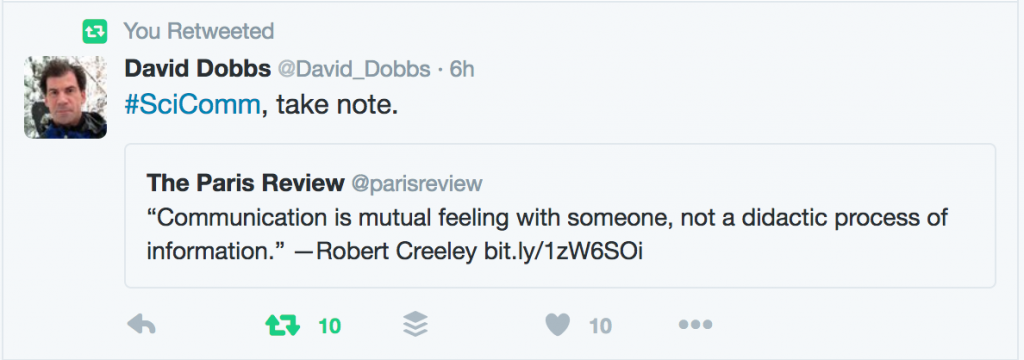Follow up on dodging a bullet
Last week I mentioned that I had considered participating in Benefunder and that an article in Science made me glad I’d decided not to participate.
I was tempted because it sounded like a very promising idea. In the end, though, I just couldn’t see investing $500 in the project. It seemed too unlikely that a donor would be interested in supporting the esoteric research that I do.
Christian Braemer, CEO/co-founder of Benefunder, left a comment on that post. If you’re interested in Benefunder, I encourage to visit the original post and read the whole comment. Here’s the key part of what he has to say about the article in Science:
The worst part is the title, which implies we’ve folded and that couldn’t be further from the truth as you’ll see in a string of press releases that are about to come out regarding new partners, board members, and investors (although this story certainly isn’t going to help with the latter).
Not to be overly dramatic, but this story is a major threat to finding new ways to fund research in this country. Consider this, with our new approach, if we get just 4% of current DAF distributions, that equates to over $1B in new funding for research. Crowdfunding (which we are not) doesn’t have the right alignment of interests, expectations, or volume to be able to pull this off – at least not for the foreseeable future.
By the way, Christian posted his comment on 8 November, the day after my original post went live. His comment only went live this morning, because it’s the first time in a week I’ve had a chance to check in.



 In early June, Michael Gove was Secretary of State for Justice and Lord Chancellor of the United Kingdom. (Image at left By Policy Exchange [CC BY 2.0 (
In early June, Michael Gove was Secretary of State for Justice and Lord Chancellor of the United Kingdom. (Image at left By Policy Exchange [CC BY 2.0 (